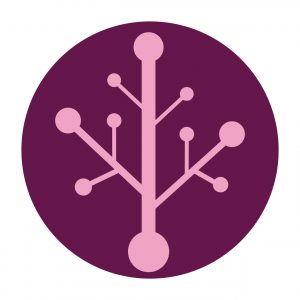A World Bank initiative to find Solutions for Job Creation… collectively we can have more impact

 I want to share with you an initiative launched by the World bank to look for practical solutions to expand job creation. This is an example of how the public sector can apply “collective intelligence” to find new and innovative solutions for an specific purpose.
I want to share with you an initiative launched by the World bank to look for practical solutions to expand job creation. This is an example of how the public sector can apply “collective intelligence” to find new and innovative solutions for an specific purpose.
In this sense, the World Bank has established a number of “Knowledge Platforms” aimed at connecting the world’s best knowledge and expertise with the problems of development. Collaboration across the Knowledge Platforms could collectively have much greater impact – a fact that is increasingly becoming obvious.
One of the Knowledge Platforms focuses on Job Creation: The Jobs Knowledge Platform
Ensuring that people around the world have access to good jobs is crucial to improving standards of living and reducing poverty. While there is a general understanding of the broad policies required to create jobs and promote labor productivity, important knowledge gaps remain on how best to design specific policy interventions.
Addressing this key global policy priority, the Jobs Knowledge Platform (JKP) aims to:
- Share insights and build synergies across different approaches, sectors, and disciplines
- Create a community to exchange challenges and solutions
- Inform important policy debates
[su_youtube url=”http://www.youtube.com/watch?v=mCLaqmn4vrY”]
In addition to a series of events, the JKP has a website that enables analysts, policymakers, and the broader public to communicate and learn through a variety of online features. All focused around a set of key debates, the interactive tools include:
Influence
- The Working Wiki: Users of the JKP can add, edit, and rate contributions to this crowd-sourced report on jobs and job creation. It will be shared during the World Bank Annual Meetings with top policy makers from around the world.
- The Jobs and Development Blog: A range of high-level experts offer their views on key jobs topics. Users can comment on blog posts and rate them.
- The Conversation: The Conversation allows users to upload their own video commentaries, adding their voice on targeted topics and questions concerning jobs.
Learn
- Data Page: Using the World Bank’s open source data, JKP users can access regional and country dashboards displaying tables and graphs with the latest data and trends on Jobs.
- The Digest: This searchable, ratable media archive helps users find jobs ideas in books, press clips, scholarly articles, and videos.
- World of Labor: This online repository will offer 100 practical notes summarizing key debates on labor policy.
Experience
- Experiences from the Field: Structured as a competition, Experiences from the Field showcases successful projects, creating a searchable database where practitioners and participants can exchange ideas. Winners will be featured at the World Bank Annual Meetings in October 2012.
- Events: Users can search this listing for JKP-sponsored and other events. They can also submit their own events for inclusion
The Jobs Knowledge Platform is managed by the World Bank in collaboration with partner organizations the Economic Research Forum, Fedesarrollo, the International Development Research Centre, the IZA the Institute for the Study of Labor, the Latin American and Caribbean Economic Association, the McKinsey Global Institute, and REALM/AMERU.
Collective intelligence. A framework from MIT
While it is clear that ICT tools today can potentially help connect people from across the world to deal with poverty, we still need to figure out the precise modalities of how to do this on a scale, and in a manner that is truly transformative. The MIT Center for Collective Intelligence has conducted research on the elements that can make a success of crowdsourcing approaches. The research by Thomas W. Malone, Robert Laubacher, and Chrysanthos Dellarocas on ‘Harnessing Crowds: Mapping the Genome of Collective Intelligence’ offers interesting insights. According to their findings, clearly defined Goals (What), Incentives (Why), Structure/Processes (How) and Staffing (Who) are key to the success of crowdsourcing initiatives. This is a valuable framework while engaging with experts (well-known and not so well-known) from civil society organizations, academia, private sector and governments for making a difference in the lives of the poor.
Sources:
http://blogs.worldbank.org/ic4d/collective-intelligence-and-poverty

